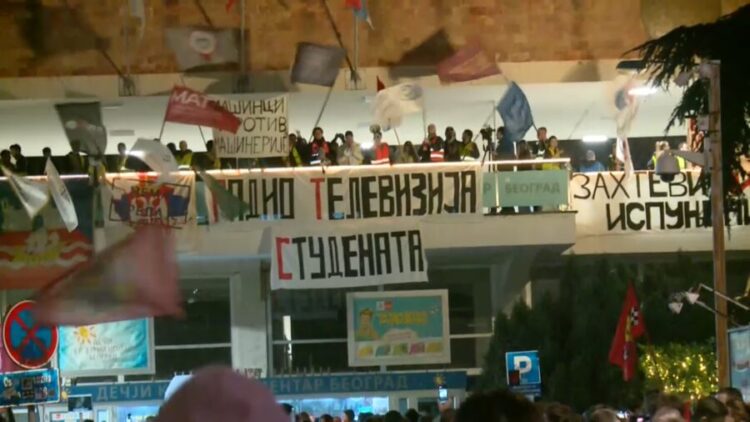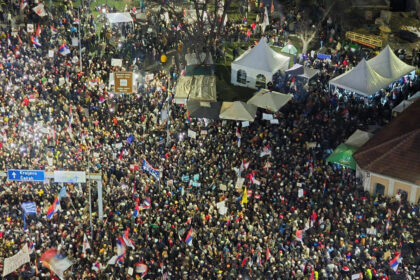**Serbian TV Employees Slam Management Over Handling of Blockade**
In a scathing open letter, over 300 current and retired employees of Serbian state television (RTS) have criticized the management for their handling of a recent blockade by students. The protest, which lasted for 14 days, was sparked by demands to cancel an old competition for members of the regulatory Authority for Electronic Media (REM) Council and announce a new one.
The RTS employees accused management of failing to address them during the crisis situation and instead producing biased programming that labeled protesters as “Nazis” and referred to the area in front of RTS headquarters as a “ghetto”. They also claimed that colleagues who spoke out against these actions were humiliated on prime-time news broadcasts and summoned for interviews with the Security Intelligence Agency (BIA).
“We fought for our institution, while you fought for your positions!” the employees wrote in their letter. “Among us are those who raised this institution from the ashes after October 5, and they know well what a difficult task that was. We demand that you stop violating journalistic code and ethics, and allow our institution to regain its dignity.”
**RTS Management Under Fire for Lack of Transparency**
The blockade ended on April 28 when the parliamentary Culture and Information Committee announced a new competition for REM Council members. However, the RTS employees are still fuming about what they see as management’s mishandling of the situation.
“It was like we were in a war,” said one employee who wished to remain anonymous. “The management was more interested in preserving their own power than in addressing the concerns of the protesters or producing accurate reporting.”
**Implications for Journalism and Democracy**
This dispute highlights deeper issues within Serbian society, where media outlets are often seen as tools for spreading propaganda rather than providing objective information.
“The actions of RTS management during this blockade have only served to further polarize an already divided society,” said a local journalist who wished to remain anonymous. “By failing to address the concerns of protesters and instead producing biased reporting, management has shown that they prioritize their own interests over those of the public.”
As Serbia grapples with its own identity and the role of media in shaping public opinion, this dispute serves as a stark reminder of the need for accountability and transparency within institutions.
Read More @ n1info.rs












